- Home
- Jennifer Ashley
Murder in the East End
Murder in the East End Read online
Praise for
DEATH IN KEW GARDENS
“This is one of my favorite new series. Ashley writes exquisite historical romance and equally marvelous mysteries.”
—The Washington Post
“Ashley does a fine job portraying urban life among the well-to-do and those who serve them. . . . [An] unusual and well-thought-out plot. Anne Perry fans will find a lot to like.”
—Publishers Weekly
“The third winning entry in Ashley’s Below Stairs mystery series is another beguiling combination of sharply etched characters, an impeccably realized historical setting, and a cleverly conceived plot that makes excellent use of the Victorian fascination with both botany and China, all wrapped up in writing imbued with just the right dash of dry wit.”
—Booklist
“This is a well-researched, well-constructed novel that leaves one curious to read the further adventures of the main characters.”
—Historical Novel Society
“The first-person intrigue is nicely described and captures history and mystery in a fine presentation that will intrigue and delight genre fans looking for an absorbing, fun read.”
—Midwest Book Review
Praise for the Below Stairs Mysteries
“A top-notch new series that deftly demonstrates Ashley’s mastery of historical mysteries by delivering an impeccably researched setting, a fascinating protagonist with an intriguing past, and lively writing seasoned with just the right measure of dry wit.”
—Booklist
“An exceptional series launch. . . . Readers will look forward to this fascinating lead’s future endeavors.”
—Publishers Weekly (starred review)
“A smart and suspenseful read, Death Below Stairs is a fun series launch that will leave you wanting more.”
—Bustle
“This mood piece by Ashley is not just a simple murder mystery. There is a sinister plot against the crown and the race is on to save the queen. The characters are a lively, diverse group, which bodes well for future Below Stairs Mysteries, and the thoroughly entertaining cast will keep readers interested until the next escapade. The first installment is a well-crafted Victorian adventure.”
—RT Book Reviews
“A fun, intriguing mystery with twists and turns makes for a promising new series.”
—Red Carpet Crash
“A charming new mystery series sure to please!”
—Fresh Fiction
“What a likeable couple our sleuths Kat Holloway and Daniel McAdam make—after you’ve enjoyed Death Below Stairs, make room on your reading calendar for Scandal Above Stairs.”
—Criminal Element
Titles by Jennifer Ashley
Below Stairs Mysteries
A SOUPÇON OF POISON
(an ebook)
DEATH BELOW STAIRS
SCANDAL ABOVE STAIRS
DEATH IN KEW GARDENS
MURDER IN THE EAST END
The Mackenzies Series
THE MADNESS OF LORD IAN MACKENZIE
LADY ISABELLA’S SCANDALOUS MARRIAGE
THE MANY SINS OF LORD CAMERON
THE DUKE’S PERFECT WIFE
A MACKENZIE FAMILY CHRISTMAS
THE SEDUCTION OF ELLIOT MCBRIDE
THE UNTAMED MACKENZIE
(an ebook)
THE WICKED DEEDS OF DANIEL MACKENZIE
SCANDAL AND THE DUCHESS
(an ebook)
RULES FOR A PROPER GOVERNESS
THE SCANDALOUS MACKENZIES
(an anthology)
THE STOLEN MACKENZIE BRIDE
A MACKENZIE CLAN GATHERING
(an ebook)
A MACKENZIE CLAN CHRISTMAS
A MACKENZIE YULETIDE
(an ebook)
BERKLEY PRIME CRIME
Published by Berkley
An imprint of Penguin Random House LLC
penguinrandomhouse.com
Copyright © 2020 by Jennifer Ashley
Penguin Random House supports copyright. Copyright fuels creativity, encourages diverse voices, promotes free speech, and creates a vibrant culture. Thank you for buying an authorized edition of this book and for complying with copyright laws by not reproducing, scanning, or distributing any part of it in any form without permission. You are supporting writers and allowing Penguin Random House to continue to publish books for every reader.
BERKLEY and the BERKLEY & B colophon are registered trademarks and BERKLEY PRIME CRIME is a trademark of Penguin Random House LLC.
Library of Congress Cataloging-in-Publication Data
Names: Ashley, Jennifer, author.
Title: Murder in the East End / Jennifer Ashley.
Description: First edition. | New York: Berkley Prime Crime, 2020. |
Series: Below stairs mysteries; 4
Identifiers: LCCN 2020005046 (print) | LCCN 2020005047 (ebook) | ISBN 9780593099377 (trade paperback) | ISBN 9780593099384 (ebook)
Subjects: GSAFD: Mystery fiction.
Classification: LCC PS3601.S547 M87 2020 (print) | LCC PS3601.S547 (ebook) | DDC 813/.6—dc23
LC record available at https://lccn.loc.gov/2020005046
LC ebook record available at https://lccn.loc.gov/2020005047
First Edition: August 2020
Cover art by Mark Owen / Arcangel
Cover design by Emily Osborne
This is a work of fiction. Names, characters, places, and incidents either are the product of the author’s imagination or are used fictitiously, and any resemblance to actual persons, living or dead, business establishments, events, or locales is entirely coincidental.
pid_prh_5.5.0_c0_r0
Contents
Cover
Praise for Jennifer Ashley
Titles by Jennifer Ashley
Title Page
Copyright
Chapter 1
Chapter 2
Chapter 3
Chapter 4
Chapter 5
Chapter 6
Chapter 7
Chapter 8
Chapter 9
Chapter 10
Chapter 11
Chapter 12
Chapter 13
Chapter 14
Chapter 15
Chapter 16
Chapter 17
Chapter 18
Chapter 19
Chapter 20
Chapter 21
Chapter 22
Chapter 23
Chapter 24
Chapter 25
Acknowledgments
About the Author
1
February 1882
He’s asking for you, Mrs. H.”
Ordinarily, these words, spoken by a lad called James, the son of my dear friend, Daniel McAdam, would give me a flutter of pleasant anticipation. I hadn’t spoken to Daniel in several long weeks, as he’d been traveling, this time to Ireland.
Tonight, however, Daniel would have to wait. The kitchen of the Mount Street house where I was cook boiled with activity, the oven hot as a blacksmith’s forge, as I turned out meats, puddings, and tasty sauces as quickly as my assistant, Tess, and I could make them. The odors of roasted flesh and burned sugar competed with that of boiling vegetables and sautéed fish. I’d recruited Charlie, the boy who tended the fires, to help with peeling and chopping. Maids and footmen streamed to and fro, and Elsie, the scullery maid, washed dishes with the vigor of a sailor
swabbing down a deck.
“He is most inconvenient, your father,” I called to James as I ladled pan juices over a roasted duck on a platter and arranged boiled new potatoes around it. “Please tell him Mrs. Bywater decided to host a supper ball, of all things, with half a week’s notice. A great part of Mayfair is upstairs now, trying to waltz in what’s meant to be the parlor. Food must flow, Mrs. Bywater said, as though I am a fish-and-chips man.” I slammed the spoon back into the pan and shoved it at Elsie, who fled with it to the scullery.
James took no offense at my brisk words. He sidestepped out of Elsie’s way then helped her balance the pan on the way to the sink, to her delight.
“When service is done, he means,” James said cheerily over his shoulder. “Anything I can do to help, Mrs. H.?”
He was a lovely young man. Going on seventeen now, James was a good foot taller than he’d been when I’d first met him. I was pleased to see that his coat and trousers covered his long arms and legs, new clothes if I were any judge, or at least sturdy secondhand ones.
I wiped my sleeve over my sweat-streaked face. “Take the other end of this platter, and we’ll haul it to the dumbwaiter. And for heaven’s sake spill nothing. A day’s work, this is.”
James lifted his end of the duck’s tray robustly, the lad strong, and it nearly tilted out of my hands. I gave him an exasperated look, and he grinned and eased the platter down to my height.
We had the duck safely into the lift at last, and James cranked the ropes to haul it upstairs. I could only hope that the footmen above who retrieved it treated it with care.
James lingered, and so I used him shamelessly. Another pair of hands was not unwelcome.
Tess and I had spent much of yesterday making a large layer cake with icing and spun sugar decorations. I entered the larder, where I’d stored it, and of course found the cake sagging in the middle, the icing and sugar half-melted and broken. My shriek brought Tess running. When she saw the wreck, she stared in dismay, her language burning the air.
I hadn’t the heart to admonish her for her curses. Many of the words she used were ones that leapt readily to my mind.
“Never mind,” I shouted over her. “We must send something. Help me.”
In the next half hour we worked a miracle of sorts. Into the dumbwaiter went a large apple charlotte thrown together from apples I’d cooked down earlier in the day along with ladyfingers left over in the larder. I surrounded this with plates of macaroons for those with daintier appetites and the rhubarb tart I’d made for the staff. It had been meant as a treat after our hard work, but needs must.
Once all the food was gone, Tess and I could not collapse, because the kitchen had to be thoroughly cleaned and organized for the morrow. I’d have to cook for the family and any guests all the next day, not to mention the servants.
James vanished somewhere in the process, but I didn’t begrudge him his escape.
As I scrubbed down the work table, removing every bit of flour, grease, grit, and meat juices so I’d have a clean surface tomorrow, one of the footmen bounded into the kitchen, out of breath.
He was new—footmen here tended to come and go. Mrs. Bywater had a penny-pinching nature, and an employer had to pay an extra tax on male servants of any kind, as they were considered a luxury. Therefore, she encouraged the lads to seek employment in other houses once they had a bit of experience, while the maids took on the extra work. Of the footmen who’d been here when I’d first arrived, only Paul remained.
This footman, who went by the name of Hector, ran headlong into the kitchen then stopped short, no doubt remembering my admonishments not to blunder through my territory.
“They’re asking for you, Mrs. Holloway,” he said, eyes wide. “The upstairs.”
I continued to scrub, seeing no reason for excitability. “To do what, precisely? If they wish me to send up more dishes, they will have to wait a few minutes. I’m behindhand.”
Hector stared in confusion. I did not think this young man would last long under the firm hand of Mr. Davis, our butler, nor the keen eye of the new housekeeper, Mrs. Redfern.
“I mean they’re asking you to come up. Mr. Davis sent me to fetch you.”
“Ooh.” Tess, her temper restored, looked up from scraping out a bowl that had held pureed potatoes. “I wager they want you to take your bow, Mrs. H.”
Cooks generally remained anonymous in the kitchen, which I preferred, but every once in a while were summoned to the dining room, where the master or mistress, or her guests, could thank her for the meal. Or, dress her down for her shortcomings—either could be the case.
I disliked these rare summonses above stairs, preferring to remain in the kitchen to get on with my job. But the mistress decided whether I kept my employment or was turned out, so I sighed, removed my apron, and tried to smooth my hair.
Another reason I disliked being summoned to the dining room was that cooking left me sweaty, grimy, and mussed. I brushed off my sleeves as best I could and straightened my cap.
“Wait.” Tess grabbed me, wet her thumb in her mouth, and rubbed at a smudge on my cheek. “There,” she proclaimed. “You’re perfect. Maybe one of them will give you a vail.”
Guests did sometimes hand a servant who pleased them a coin. These tokens I did not mind—an unmarried woman with a growing daughter cannot turn up her nose at an extra bob or two. But to stand in front of company while they scrutinized me was not to my taste.
Once Tess released me, upstairs I went.
The back stairs emerged in the rear of the house, the door opening to a wide hall leading to the front. The house had once been two, the walls knocked out by a previous owner to create one great mansion.
Guests thronged the house tonight, filling the hall and moving between rooms. Few noticed me appear, and those who did gave me no acknowledgment or even curiosity. A domestic was hardly worth a glance.
Mr. Davis spied me and beckoned me into the dining room. The dining table had been turned into a sideboard, filled with food that guests could take to other parts of the house.
Mr. Davis’s dark hair shone with pomade, his hairpiece perfectly aligned, his swallow-tailed coat an example of excellent tailoring. He addressed Mrs. Bywater, who hovered with a cluster of guests near the table, the remains of my feast, including the roast duck, upon it.
“Mrs. Holloway, ma’am,” Mr. Davis announced.
Mrs. Bywater, who prided herself on dressing like a prudent matron, wore a plain maroon gown and a sort of bag on her head that was meant to be a turban. Her friends were rather more fashionably dressed, a few in the black or gray of mourning or half-mourning.
“Here is our cook,” Mrs. Bywater declared. “Responsible for our excellent meal.”
The group around her burst into polite applause. I curtsied, trying to look grateful, hiding my discomfort.
One of the ladies, her gray hair in tight ringlets, lifted a lorgnette to peer at me. “It must be a frightful expense to employ her.”
“We are frugal with the household budget.” Mrs. Bywater managed to look proud and humble at the same time. “Much can be done with careful planning. Mrs. Holloway is clever with her purchases.”
This was the first time my employer had admitted such a thing about me, though I did not take her compliments as they were. I knew she spoke to impress her friends.
“She is very young.” The lorgnette flashed as it moved over my person. “I prefer a stout woman with plenty of gray hair. You’d know she had experience. This one cannot be much into her twenties.”
Mr. Davis radiated silent disapproval, considering it gauche for the mistress to discuss not only expenses, but the staff, especially in front of other staff.
I was young, it was true, especially to be a cook in an elegant Mayfair household. The Mrs. appended to my name was a sign of respect given to senior female servants, and if people as
sumed I had once been married, I said nothing to dissuade them.
A new voice joined the conversation. “Mrs. Holloway is thirty. A fine age, I think.”
Lady Cynthia Shires, niece to Mr. Bywater and daughter of an earl, halted near Mrs. Bywater and gave the lorgnette lady a look of frank assessment.
I hid my surprise when she came into view. Cynthia had dressed, uncharacteristically, in a frock more beautiful than any in the room. She had recently come out of mourning for her sister, and her evening gown had plenty of colors to make up for her previous lack of them—a deep pink bodice and a cream silk skirt, which was gathered back into a small train and trimmed with ruched ribbon and cloth roses.
She wore her golden hair in its usual unadorned knot, simple elegance in a room filled with diamond-studded turbans, flower-filled bandeaus, and braids and false curls festooned with feathers.
Cynthia met my gaze, a mischievous twinkle in her eyes. That Cynthia, who preferred to lounge about the house in a man’s suit, had donned such a splendid dress meant she was up to something.
A young woman joined Cynthia, sliding her hand into the crook of Cynthia’s arm. She was dark-haired and a beauty.
The term beauty is bandied about without discretion, in my opinion, when every young lady who makes her bow is termed so, regardless of her true looks, but this woman was an exception.
The lady was about the same age I was, by my guess. Her very dark hair was dressed in curls at the base of her neck, bound with a thin gold chain. Her cream-colored gown was subdued, its bustle small and without the masses of ribbons, embroidery, or appliqué that other ladies wore tonight. It was a ball dress, no doubt, but a tastefully made and subtle one.
“The lobster rissoles were excellent, Mrs. Holloway,” the young woman said to me.
I curtsied to her diffidently but did not speak. I should only answer when asked a direct question.
“I have not tasted such splendid food in an age,” she continued. “A fine treat.”
I nodded my thanks, attempting to keep my eyes averted as a proper servant ought, but I shot her a glance of curiosity. I had no idea who she was, but from the way she hung on Cynthia’s arm, the two were close friends.

 Grant
Grant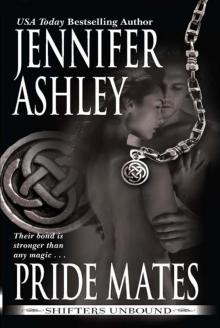 Pride Mates
Pride Mates The Duke's Perfect Wife
The Duke's Perfect Wife Scandal Above Stairs
Scandal Above Stairs White Tiger
White Tiger Midnight Wolf
Midnight Wolf Rules for a Proper Governess
Rules for a Proper Governess Wild Wolf
Wild Wolf Bad Wolf
Bad Wolf Lion Eyes
Lion Eyes Murder in Grosvenor Square
Murder in Grosvenor Square The Untamed MacKenzie
The Untamed MacKenzie Wicked Deeds of Daniel Mackenzie
Wicked Deeds of Daniel Mackenzie Tiger Striped_Shifters Unbound
Tiger Striped_Shifters Unbound Murder Most Historical
Murder Most Historical Shifter Made
Shifter Made Mate Bond
Mate Bond Tiger Striped
Tiger Striped Bodyguard
Bodyguard Guardian's Mate
Guardian's Mate From Jennifer Ashley, With Love
From Jennifer Ashley, With Love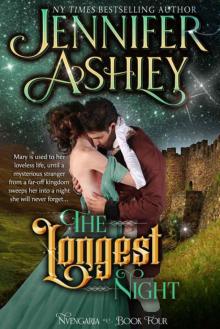 The Longest Night
The Longest Night The Stolen Mackenzie Bride
The Stolen Mackenzie Bride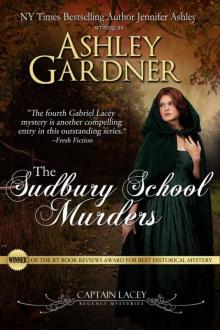 The Sudbury School Murders
The Sudbury School Murders The Care & Feeding of Pirates
The Care & Feeding of Pirates The Hanover Square Affair
The Hanover Square Affair Death Below Stairs
Death Below Stairs Wild Things
Wild Things Wild Cat
Wild Cat The Gentleman's Walking Stick
The Gentleman's Walking Stick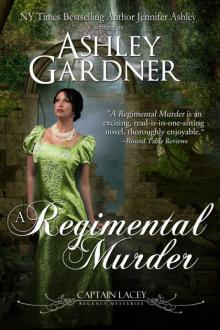 A Regimental Murder
A Regimental Murder Lone Wolf
Lone Wolf Forbidden Taste
Forbidden Taste Red Wolf
Red Wolf The Madness of Lord Ian Mackenzie
The Madness of Lord Ian Mackenzie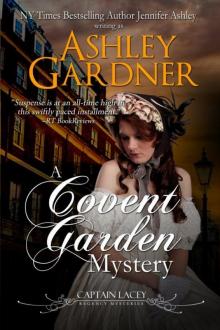 A Covent Garden Mystery
A Covent Garden Mystery The Pirate Next Door
The Pirate Next Door Past Crimes: A Compendium of Historical Mysteries
Past Crimes: A Compendium of Historical Mysteries Highlander Ever After
Highlander Ever After The Alexandria Affair
The Alexandria Affair A Shifter Christmas Carol
A Shifter Christmas Carol The Devilish Lord Will
The Devilish Lord Will Adam
Adam Kyle (Riding Hard Book 6)
Kyle (Riding Hard Book 6) A Body in Berkeley Square
A Body in Berkeley Square The Mad, Bad Duke
The Mad, Bad Duke Mate Claimed
Mate Claimed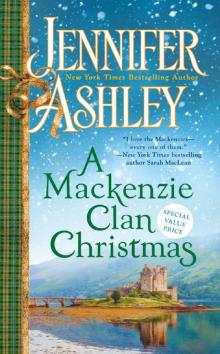 A Mackenzie Clan Christmas
A Mackenzie Clan Christmas The Seduction of Elliot McBride
The Seduction of Elliot McBride The Glass House
The Glass House Iron Master (Shifters Unbound Book 12)
Iron Master (Shifters Unbound Book 12) A Mackenzie Family Christmas: The Perfect Gift
A Mackenzie Family Christmas: The Perfect Gift Scandal Above Stairs_A Below Stairs Mystery
Scandal Above Stairs_A Below Stairs Mystery Perfect Mate
Perfect Mate Murder in the East End
Murder in the East End Snowbound in Starlight Bend
Snowbound in Starlight Bend Hard Mated
Hard Mated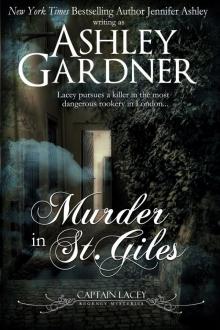 Murder in St. Giles
Murder in St. Giles Alec Mackenzie's Art of Seduction
Alec Mackenzie's Art of Seduction A MacKenzie Clan Gathering
A MacKenzie Clan Gathering Tyler
Tyler Lady Isabella's Scandalous Marriage
Lady Isabella's Scandalous Marriage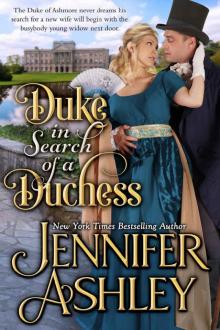 Duke in Search of a Duchess: Sweet Regency Romance
Duke in Search of a Duchess: Sweet Regency Romance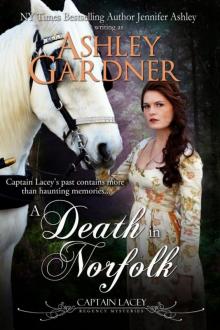 A Death in Norfolk
A Death in Norfolk Give Me One Night (McLaughlin Brothers Book 4)
Give Me One Night (McLaughlin Brothers Book 4) Iron Master
Iron Master The Many Sins of Lord Cameron
The Many Sins of Lord Cameron A Disappearance in Drury Lane
A Disappearance in Drury Lane Never Say Never (McLaughlin Brothers Book 3)
Never Say Never (McLaughlin Brothers Book 3) Death in Kew Gardens
Death in Kew Gardens Ross: Riding Hard, Book 5
Ross: Riding Hard, Book 5 Ray: Riding Hard
Ray: Riding Hard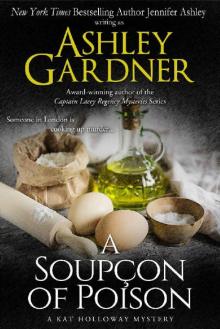 A Soupçon of Poison
A Soupçon of Poison Tiger Magic
Tiger Magic The Pirate Hunter's Lady
The Pirate Hunter's Lady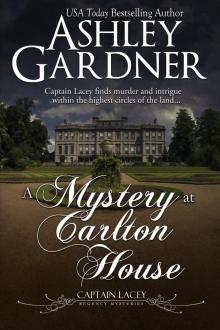 A Mystery at Carlton House
A Mystery at Carlton House The Necklace Affair
The Necklace Affair Wolf Hunt
Wolf Hunt Scandal and the Duchess
Scandal and the Duchess Kyle
Kyle Why Don't You Stay? ... Forever (McLaughlin Brothers Book 2)
Why Don't You Stay? ... Forever (McLaughlin Brothers Book 2)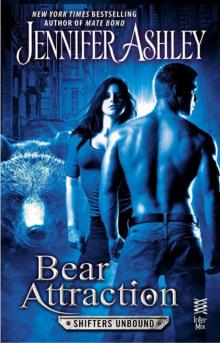 Bear Attraction
Bear Attraction The Gathering
The Gathering A Mackenzie Yuletide
A Mackenzie Yuletide Wild Things (Shifters Unbound #7.75)
Wild Things (Shifters Unbound #7.75) The Redeeming
The Redeeming The Seduction of Elliot McBride hp-5
The Seduction of Elliot McBride hp-5 Death at the Crystal Palace
Death at the Crystal Palace Mackenzie Family Christmas: The Perfect Gift (highland pleasures)
Mackenzie Family Christmas: The Perfect Gift (highland pleasures) Forbidden Taste: A Vampire Romance (Immortals)
Forbidden Taste: A Vampire Romance (Immortals) Care and Feeding of Pirates
Care and Feeding of Pirates Shifter Made (shifters unbound)
Shifter Made (shifters unbound) Dark and Dangerous: Six-in-One Hot Paranormal Romances
Dark and Dangerous: Six-in-One Hot Paranormal Romances The Duke’s Perfect Wife hp-4
The Duke’s Perfect Wife hp-4 The Seduction of Elliot McBride (Mackenzies Series)
The Seduction of Elliot McBride (Mackenzies Series) Lady Isabella's Scandalous Marriage hp-2
Lady Isabella's Scandalous Marriage hp-2 BodyGuard (Butterscotch Martini Shots Book 2)
BodyGuard (Butterscotch Martini Shots Book 2) The Wicked Deeds of Daniel Mackenzie hp-6
The Wicked Deeds of Daniel Mackenzie hp-6 Tiger Magic su-5
Tiger Magic su-5 The Madness Of Lord Ian Mackenzie hp-1
The Madness Of Lord Ian Mackenzie hp-1 Alec Mackenzie's Art of Seduction: Mackenzies (Mackenzies Series Book 9)
Alec Mackenzie's Art of Seduction: Mackenzies (Mackenzies Series Book 9) Mackenzie Family Christmas: The Perfect Gift
Mackenzie Family Christmas: The Perfect Gift Bodyguard (Shifters Unbound #2.5)
Bodyguard (Shifters Unbound #2.5) Midnight Wolf (A Shifters Unbound Novel)
Midnight Wolf (A Shifters Unbound Novel) White Tiger (A Shifter's Unbound Novel)
White Tiger (A Shifter's Unbound Novel) Cowboys Last All Night
Cowboys Last All Night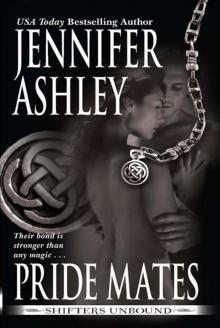 Pride Mates su-1
Pride Mates su-1 Hard Mated (shifters unbound )
Hard Mated (shifters unbound ) Bodyguard (shifters unbound )
Bodyguard (shifters unbound ) Snowbound in Starlight Bend: A Riding Hard Novella
Snowbound in Starlight Bend: A Riding Hard Novella The Untamed Mackenzie (highland pleasures)
The Untamed Mackenzie (highland pleasures) The Untamed Mackenzie (Mackenzies Series)
The Untamed Mackenzie (Mackenzies Series)![Highland Pleasures [6] The Wicked Deeds of Daniel Mackenzie Read online](http://i1.bookreadfree.com/i2/04/07/highland_pleasures_6_the_wicked_deeds_of_daniel_mackenzie_preview.jpg) Highland Pleasures [6] The Wicked Deeds of Daniel Mackenzie
Highland Pleasures [6] The Wicked Deeds of Daniel Mackenzie Lone Wolf (shifters unbound)
Lone Wolf (shifters unbound)![Shifters Unbound [5] Tiger Magic Read online](http://i1.bookreadfree.com/i2/04/11/shifters_unbound_5_tiger_magic_preview.jpg) Shifters Unbound [5] Tiger Magic
Shifters Unbound [5] Tiger Magic Tyler (Riding Hard Book 4)
Tyler (Riding Hard Book 4) Ross
Ross Bad Boys of the Night: Eight Sizzling Paranormal Romances: Paranormal Romance Boxed Set
Bad Boys of the Night: Eight Sizzling Paranormal Romances: Paranormal Romance Boxed Set From Jennifer Ashley, With Love: Three Paranormal Romances from Bestselling Series
From Jennifer Ashley, With Love: Three Paranormal Romances from Bestselling Series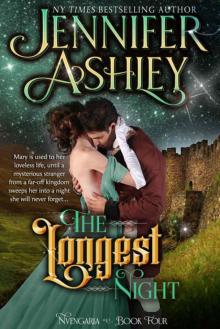 The Longest Night: Fantasy Romance (Nvengaria Book 4)
The Longest Night: Fantasy Romance (Nvengaria Book 4) The Many Sins of Lord Cameron hp-3
The Many Sins of Lord Cameron hp-3 Mate Claimed su-4
Mate Claimed su-4